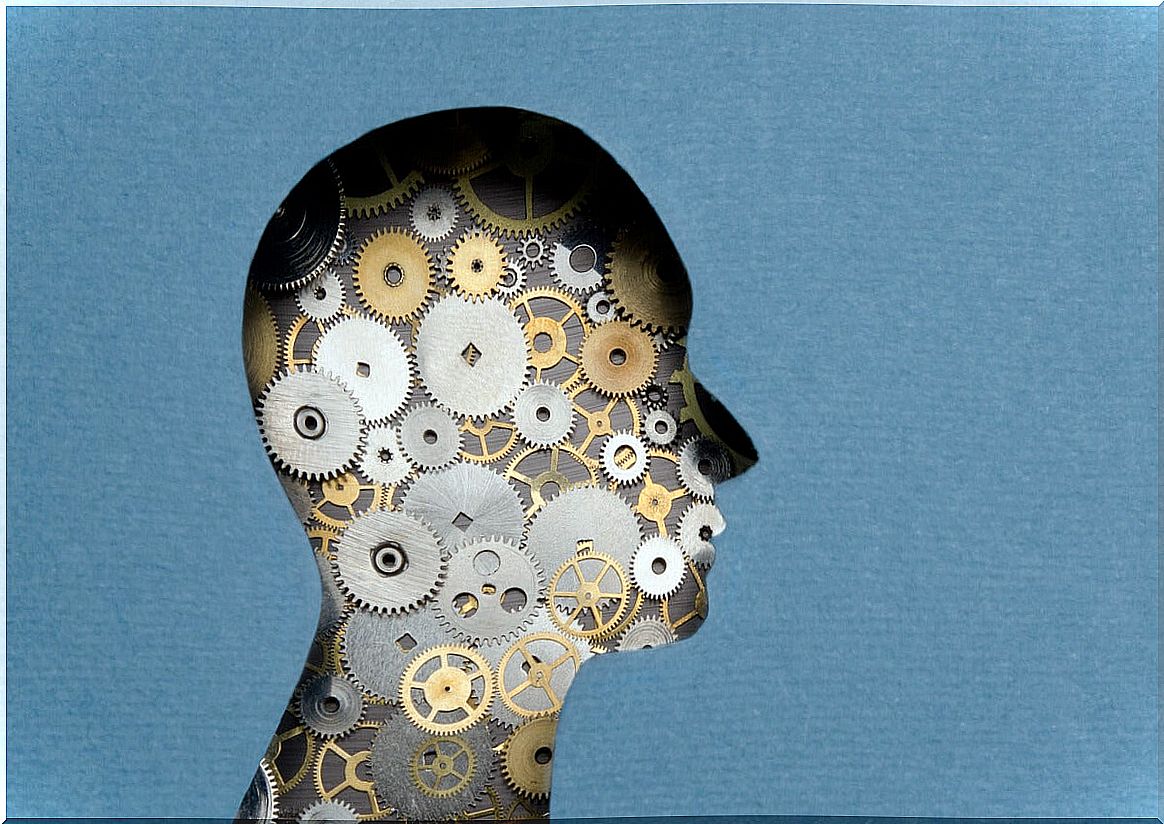7 Curiosities About The Human Mind

Both the human mind and the brain contain great mysteries that science is still trying to unravel. However, neurosciences have come a long way in recent years, and thanks to this we are increasingly learning more about how our mind and behavior work. We talk about it through 7 curiosities about the human mind that we bring you.
As we know, mind, brain, and behavior are intrinsically connected. Thus, many of the phenomena that we experience at the brain level have an impact on our way of thinking and feeling (mind) and on our behavior. If you want to find out a little more about it, stay!
The mind will never cease to amaze us and, as many experts say, it is a structure with undeniable power. The curiosities about the human mind that we are getting to know through neurosciences are more and more, although here we have selected only 7 of the most interesting.

Each hemisphere is specialized
The brain is divided into two cerebral hemispheres, the right and the left, and each of them has specific functions. The right hemisphere is related to creative and imaginative processes, and also controls: intuition, music and art, subjectivity, emotions, facial recognition and the perception of 3D shapes.
In contrast, the left hemisphere is responsible for logical reasoning and language, among other functions. In it, numerical and mathematical skills, oral and written language and reasoning are “located”. This hemisphere is also in charge of our most objective part, and it helps us to carry out logical analyzes of things.
The brain has critical periods
The brain is a highly plastic organ (neural plasticity). What does this mean? That when we are born, our brain is perfectly prepared and programmed to learn and to adapt its neural structures and circuits to new learning and knowledge. Furthermore, if you are injured early in life, it is easier for you to “recover”, precisely because of this neural plasticity.
However, although it is plastic, it also has critical periods, as studies show. This means that there are periods in which the brain is more plastic and efficient in consolidating certain learning, especially in childhood. But what happens when we exceed those periods in time? That the brain is losing the ability to learn this knowledge. Thus, if the child does not learn a certain knowledge (for example, language) during that period, it is more difficult for him to achieve it later (because his brain is no longer plastic for that learning, the critical period for doing so has already passed).
We never stop learning
A study conducted by the Massachusetts Institute of Technology showed how our mental circuits are always constantly updated. This is so to keep expanding our knowledge.
Specifically, it is the neurons of the striatum of the brain, as well as the neurons of the prefrontal cortex, which are in continuous tune, in order to rapidly absorb and analyze new information from the environment. In other words: according to the study mentioned, these neurons are continuously active because we do not stop learning.
There are privileged minds
Although most people (85% of the population) have an intelligence considered normative, that is, with an IQ of between 90 and 115, there are other people with really privileged minds. They are people who possess brilliant intelligence, beyond average. In a documentary broadcast by the Odisseia program , they show us people with real mental gifts.
In it appears the neuroscientist Zorsten Ferr (University of Bremen), specialized in the study of people with a great memory. Ferr has dedicated the last years of his life to studying this type of mind; people with the ability to do great mental calculations in a matter of seconds, or with the ability to memorize impossible lists of words also in a very short time.
Mental abilities age at different rates
Another of the curiosities of the human mind that we bring you is this one that has to do with the evolution of different mental capacities. According to a study published in the journal Psychological Science , conducted by the Massachusetts Institute of Technology (MIT), mental abilities age at different rates.
Thus, although the human mind loses its effectiveness from the age of 20, the truth is that there are some mental functions that continue to function fully until the age of 40.
Contributing makes us happy
The investigations of two psychologists, Elizabeth Dunn and Michael Norton, published in their book Happy Money. The Science of Happier Spending, provided curious data in relation to what makes us happy.
According to the studies of these psychologists, the fact of spending money on others produces a feeling of satisfaction and fulfillment that is very great, which is also much greater than if we were spending the money on ourselves. If, in addition, the money spent is invested in people whom we really appreciate, the feeling of happiness and pleasure is even greater.

There are neurons that do reproduce
Until now it had always been believed that neurons did not reproduce. That is, these remained more or less constant throughout life and ended up progressively dying (but never reproducing). However, some research has shown how certain brain cells do; specifically, cells located in the hippocampus (structure related to memory consolidation).
And you, did you know any of these curiosities? Which one has impacted you the most? Although the brain and the mind are still great unknown in many aspects, the truth is that every time we get to know a new aspect of them, new doors open to continue investigating their great curiosities.
If you want to continue learning about mind and brain, you can read another of our articles, this time about curiosities about the emotional mind.









